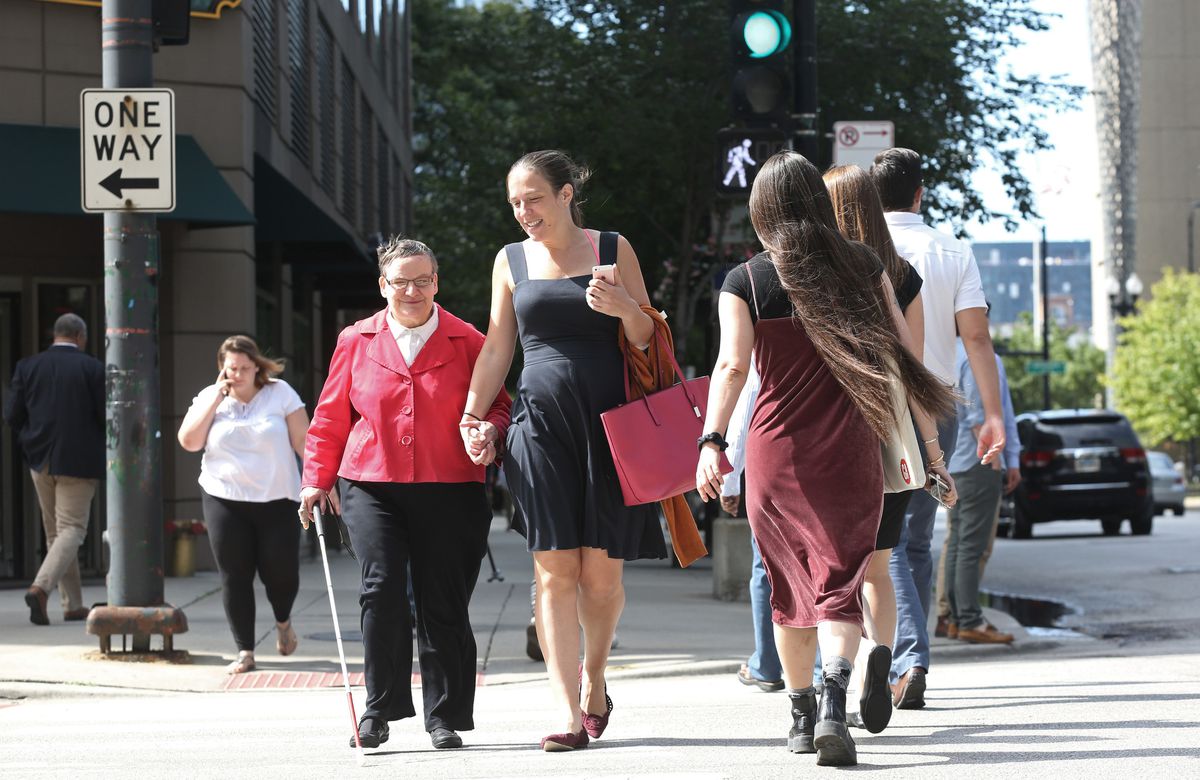The department’s proposed complaint alleges that the city fails to provide people who are blind, have low vision, or are deaf-blind with equal access to pedestrian signal information at intersections. Pedestrian signal information, such as a flashing “Walk/Don’t Walk” signal, indicates when it is safe to cross the street.
Accessible pedestrian signals (APSs) are devices that provide pedestrians with safe-crossing information in a non-visual format, such as through audible tones, speech messages, and vibrotactile surfaces. Since at least 2006, Chicago has recognized the need to install APSs for pedestrians with visual disabilities. Yet, while Chicago currently provides sighted pedestrians visual crossing signals at nearly 2,700 intersections, it has installed APSs at only 15 of those intersections. The proposed suit alleges that the lack of APSs at over 99% of Chicago’s signalized intersections subjects people who are blind, have low vision, or are deaf-blind to added risks and burdens not faced by sighted pedestrians, including fear of injury or death.
“The ADA and Section 504 require that individuals with disabilities have equal access to public services, including access to pedestrian crossing information that is critical for safety and for full participation in community life,” said Principal Deputy Assistant Attorney General Pamela S. Karlan of the Justice Department’s Civil Rights Division. “Chicago has determined that safe-crossing information is necessary for sighted pedestrians to navigate throughout the city, and this suit seeks to ensure that the city provides the same benefit to people with visual disabilities.”
“The U.S. Attorney’s Office is taking this action to ensure that Chicagoans with disabilities are provided equal access to city services, particularly those services whose purpose is public safety,” said U.S. Attorney John R. Lausch Jr. for the Northern District of Illinois. “We are concerned about the serious lack of accessibility to safe intersection crossings for Chicagoans who are blind, have low vision, or are deaf-blind, and we are confident that our involvement in this important case will ultimately bring a meaningful resolution to the city and its millions of residents, daily commuters, and visitors.”
The motion and complaint seeking intervention were jointly filed by the Disability Rights Section of the department’s Civil Rights Division and the U.S. Attorney’s Office for the Northern District of Illinois. The case is being handled by Assistant U.S. Attorneys Patrick Johnson and Sarah J. North, and Trial Attorney Matthew Faiella. To read the motion to intervene, please click here: https://www.ada.gov/acbmc/acbmc_motion.html.



